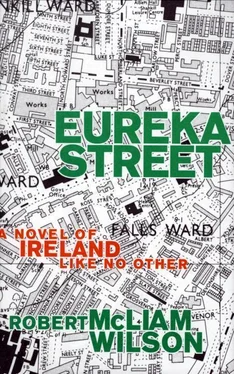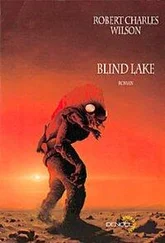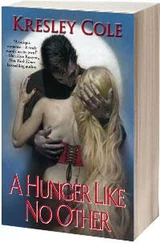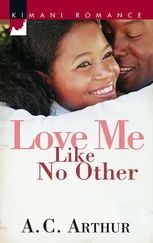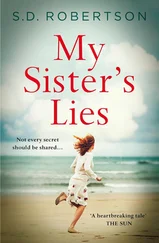The largest part of one of the glass display cases blasted in her direction. Though fragmented before it reached her, the pieces of shrapnel and glass were still large enough to kill her instantly. Her left arm was torn off by sheeted glass and most of her head and face destroyed by the twisted mass of a metal tray. The rim of the display case, which was in three large sections, sliced through or embedded in her recently praised hips and some heavy glass jars impacted on her chest and stomach, pulverizing her major organs. Indeed, one substantial chunk of glass whipped through her midriff, taking her inner stuff half-way through the large hole in her back.
The young man who had opened the door for was thirty-four but still had unlined skin and thick hair, had always been thought younger than he was but what had irritated him in his early twenties now delighted him, as he saw his old schoolfriends married or bald and he could still comfortably date girls ten years younger than also killed, though he took nearly twenty seconds to stop existing. Some of the display case had removed one of his legs completely and mutilated his groin and pelvis. Glass from the door had smashed open his face, ripping off his nose, and penetrated his brain. His name was Martin O'Hare. He had been to school. He had read Great Expectations and had wanted to be an astronomer. He had been in love with people and people had been in love with him. He had a story, too.
Inside the sandwich shop (how unglamorous, how untremendous — Northern Ireland had never dealt in epic murder sites: alleyways, corner shops, betting shops, sandwich shops, mobile shops, crap pubs, bad dance halls, up against a variety of walls painted and unpainted), Kevin McCafferty stopped existing. Kevin had been serving a salad and bacon baguette, with Flora rather than butter, to a middle-aged businessman he didn't like. Kevin was poorly paid but was doing the double to get by. He was tired of being on the dole and he wanted to be famous. He sang in a band whose name changed every rather, every month. He didn't really like music and he knew he couldn't sing. But it was an excuse to wear his hair long, chase girls and perhaps, one day, to appear on television, which he greatly desired.
(Kevin achieved his ambition six months later when an independent film company broadcast a documentary on Channel 4 about the Troubles and used some of the Fountain Street sceneof-crime photographs that were to be taken within the next five or six hours. Kevin, standing so close to the blast, had been impressively mangled but, though decapitated and missing a leg and a large portion of chest and abdomen, there was, crucially, something recognizably human about his meat. Other victims had been blown entirely to bits and though the colour pictures of those people (or pieces, more properly) were certainly shocking, the director decided that they lacked that human dimension, that extraordinary shockingness that Kevin's beef-like approximation of the human form possessed. The Broadcasting Complaints Authority later upheld a record number of complaints about the programme from people who didn't want to look at that kind of thing and from Kevin's mother who insisted, correctly and miraculously, that she recognized her son's internal organs, his exposed ribs and spine, his headless, grotesque self. The film director's wife refused to sleep with him for nearly three months and the RUC scene-of-crime photographer committed suicide five months later in an incident that wasn't necessarily related.)
Kevin had a story, too.
Natalie Crawford also had a story. She was eight years old so it wasn't, up to then, a very long story or perhaps even enormously interesting to most adult readers (apart from her indulgent parents, of course) but, in the normal course of events, her story would have grown, used a larger cast, involved more scenes and events. Even so, an eight-year-old's story was quite a lot to end so abruptly. She, her sister twelve-year-old who was already in love with a boy from Carryduff who, she insisted, despite his impressive spots, had eyes just like Brad Pitt's — and their mother, Margaret, all stopped existing more or less in unison when a blown-apart drinks fridge showered its hot metal on their soft, unresisting flesh.
The Crawford family had its own collective story. The loss of the three Crawford women certainly robbed that story of much of its dynastic heft. In addition, husband-and-father Robert certainly felt that the rest of his personal narrative wasn't quite the ringing thing it should have been. Wifeless, childless, Robert simply refused to live with it. He refused to deal with it. Afterwards television crews, doing pieces about the grieving relatives, used him gleefully for the first couple of weeks. The dead wife and two little girls made such a good story. In the months that followed, with Robert's stubborn resistance to comfort or happiness, the TV crews avoided him. His passionate grief, his lack of development, his unreasonable and untelegenic refusal to forgive didn't make such a good story.
Robert's great grief was that his wife and children had only been in Fountain Street that day because he and Margaret had had such a furious row about his never doing the dishes. The backlog and arrears of ten years of marital resentments had, as always, been exercised and rehearsed in full force and Margaret had stomped off into town with the two children to cry, sulk and get killed.
Robert never got used to how much this hurt; he never lost his surprise at the stormy extent of his grief. It would wake him in the middle of the night. He didn't have to dream about it: it lay like a crust over his thoughts, conscious and unconscious, a massive hurt for which he had no room but which grew anyway like something obscene rising in his gut. The first time he masturbated after the explosion, three months later, he had cried himself to sleep, dead with shame and guilt. It was as though nothing he could do could match the dignity of how he should remember them. It was as though he had only learned to love them after they had been blown apart. Love choked him as much as grief. Dreadful, uncontrollable tenderness that had nowhere to go. He had nowhere to put all the love they had made him feel when they died. He had never known how dreadful, how damaging love could be.
Robert's story became uncommercial. He lost his job. He lost his friends. He remember not to it just rained in his heart for the rest of his life.
So, thus, in short, an intricate, say some, mix of history, politics, circumstance and ordnance resulted in the detonation of a one-hundred-pound bomb in the enclosed space of the front part of a small sandwich shop measuring twenty-two feet by twelve.The confined space and the size of the device created a blast of such magnitude that much of the second floor of the front part of the building collapsed into it and out onto the street. There were fourteen people in the sandwich bar. There were five people in the beauty parlour upstairs when it collapsed and twelve on the street in the immediate vicinity of the flying shrapnel and collapsing beauty parlour. Thirty-one people in all, of whom seventeen stopped existing then or later and of whom eleven were so seriously injured as to lose a limb or an organ.
In a glass-fronted bookshop across the street a security guard and two browsers in the travel section were badly wounded when the bookshop window exploded.The security guard lost one eye completely but merely the sight of the other, while the face and scalp of a middle-aged woman leafing through a picture book about Mauritius were permanently mutilated. The other browser lost much of the delicate tissue of his neck and face.
A street bin thrown across the exit of Queen's Arcade by the force of the blast hit a schoolboy sitting on one of the stone benches there and so damaged his pelvis that he would never walk properly again.
Читать дальше
